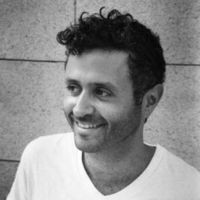This Multibillion-Dollar Corporation Is Controlled by a Penniless Yoga Superstar
Baba Ramdev renounced the material world twenty-three years ago to become a Hindu ascetic. Now he’s on TV selling toothpaste, instant noodles, and toilet cleaners and the company he is believed to control is poised to become the biggest consumer goods seller in India.





